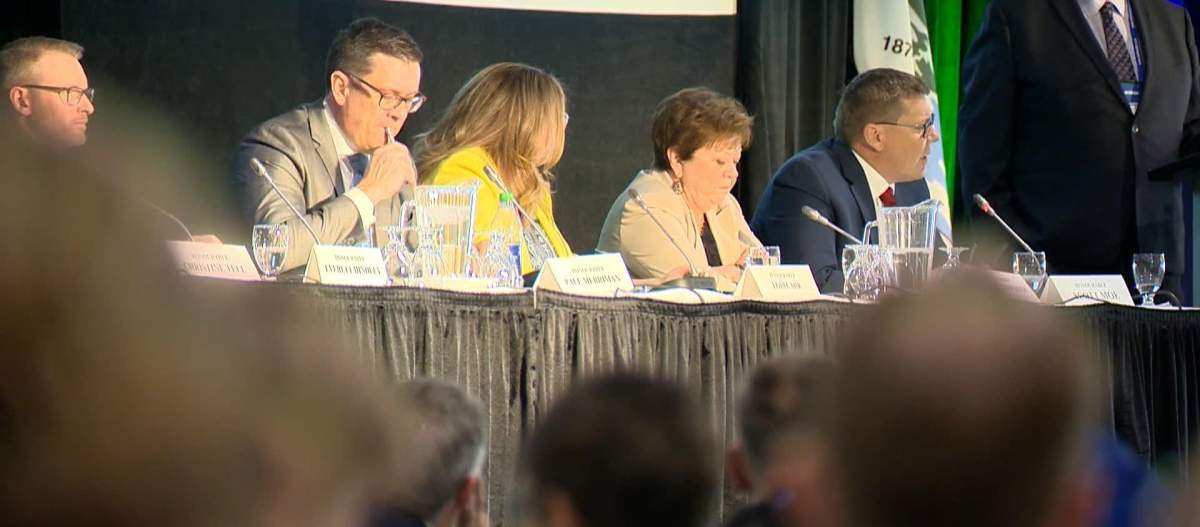Many small communities across Saskatchewan feel like they are on their own dealing with what they thought were just local problems, but at the SUMA convention they learned that isn’t the case.

“So many of us are small communities that these all feel way bigger than a part-time council … can handle, but we’re all dealing with all the same things so we don’t have to figure it all out all by ourselves,” said Porcupine Plain Mayor Nick Wood.
“Normally those health responsibilities would not be a municipal responsibility. It would be a provincial or a federal but they’re happening in our hometowns. We see the issues that are happening. Whether the hospitals are overcrowded or families or individuals are struggling so this was the opportunity to come together and talk about it and bring it forward to our provincial government,” said SUMA President Randy Goulden.

The majority of questions directed to the provincial cabinet in the bear pit Wednesday were about health care concerns, both general and regarding mental health and addiction.
“Every time you try to do something you get told well there’s not enough people. There’s not enough doctors, not enough nurses, there is not enough staffing for other areas of the hospital save food service,” said Wood.
“You go to any town any city and it doesn’t matter the size, but one of the things you hear over and over again is we have nowhere to turn, we have nobody to help us, we don’t have the resources, we don’t have the facilities and we just don’t know what to do,” said Humboldt Mayor Michael Behiel.

Get breaking National news
During the ‘bear pit’ session the cabinet ministers insisted that they are working with community-based organizations and recognizing models that are effective in dealing with mental health and addiction issues. But some SUMA members believe the actions don’t match the words.
“Yet in the budget this year they announced the removal of funding to the Prairie Harm Reduction site. That has been one of the most effective sites that we have identified and recognized. They were keeping the data, showing the statistics that they’re making a difference and then they pull all the funding from them,” said a disappointed Behiel.
For many of the more remote communities, relying on health care in Saskatchewan’s bigger cities just isn’t satisfactory anymore.
“The answer frequently is that we should just ship people out to the next biggest centre, and for our community, that’s at least 45 minutes to an hour but we represent a very large rural area and so for them it can be much much longer,” said Wood.

Instead of just asking for more resources, the networking aspect of the SUMA conference allows leaders to share innovative solution ideas for their health care issues. The mayor of Porcupine Plain is open to changing the way health care functions in Saskatchewan,
“Just allowing more scope of duties for, say, nurse practitioners or RNs, or more work on getting advanced care EMTs or having physicians be able to contact other physicians in order to increase their scope of operations,” said Wood.
Those in attendance have no shortage of ideas to contemplate on their drive back to their communities.
“The more and more I talk with other communities I realize that there’s more that has brings us together than has us apart or different,” said Goulden.








Comments